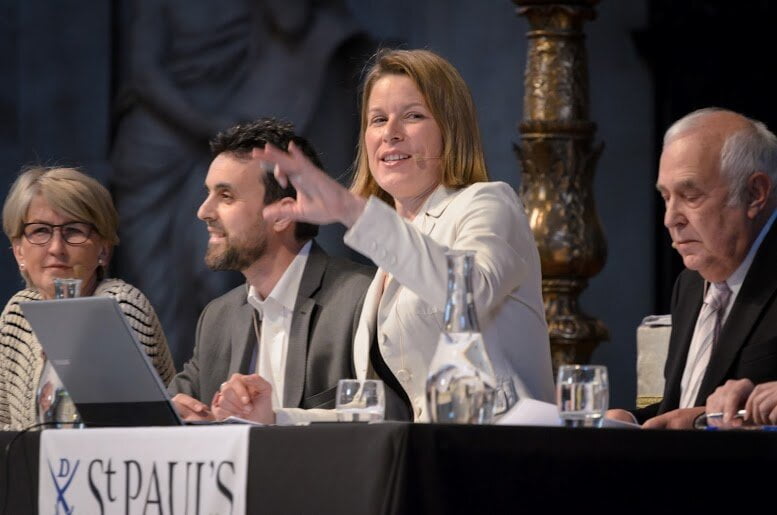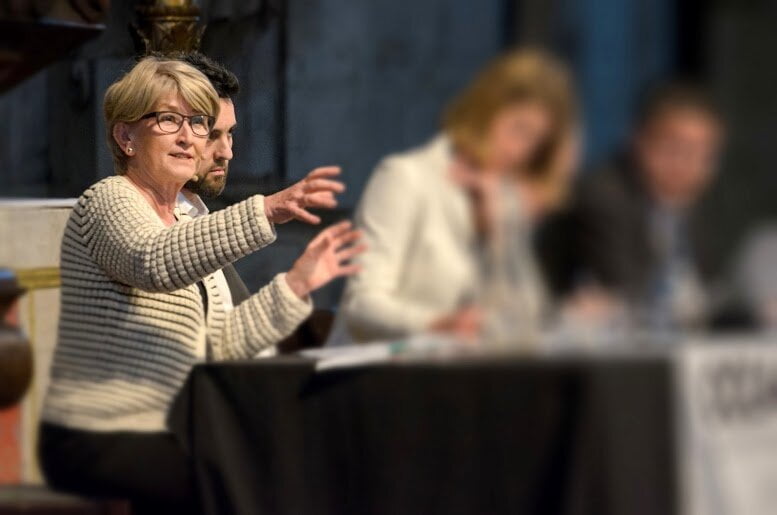Ann Pettifor was invited to take part in a debate asking “The City and the Common Good: What kind of City do we want?” organised by St. Paul’s Institute and CCLA. Speakers included economic historian Lord Robert Skidelsky, Tarek El Diwany of Zest Advisory LLP and Paul Sharma of the Prudential Regulation Authority. The debate was chaired by BBC Economics Editor Stephanie Flanders and attended by over 900 people.
The second of a series of three debates, last night’s event examined the moral underpinnings at the heart of the UK’s financial system. It is clear that money is no longer just an objective measure of value and a token of exchange – if it ever was. But what has it become? Is its social purpose in danger of being lost? Do we control money or does it control us? Is there such a thing as “good” and “bad” money?
GWL_2706









One Response
It’s interesting to see it put in economic terms as the pursuit of money. For Mills it was utility and for Bentham the pursuit of pleasure. And though Bentham was proposing that we pursue pleasure to the good, wisdom ancient and modern is that this leads to disaster. It could be argued that we see money in terms of utility, but it could also been seen in terms of the potential for pleasure: more money buys more pleasure, and more exquisite pleasures. Money represents pleasure. Unconsciously.
But science tells us that pleasure in all it’s forms produces diminishing returns if pursued. It’s to do with how the brain is wired (particularly the Ventral Tegument Area) and how brain cells communicate with each using neurotransmitters (particularly in this case dopamine). The more pleasure we get, the less we enjoy it, and the more we have to have to feel satiated. Hence also the obesity epidemic. The pursuit of money also provides diminishing returns – we can never get enough if our goal is merely to use it for our own pleasure. The super-rich are money-obese. Never satiated. Economic life seems to translate to the pursuit of ever higher standards of living, at any cost to the planet or our neighbours. We never know when we have enough. There is no rational for *not* pursuing more and more.
Hence we sanction the banks to create more money in the form of debt. Debt enabled us mainline our drug of choice for a little while. Oh the ecstasy! But the morning after is hellish. The deficit of pleasure to pay for last nights sensual orgy is killing.
I think we need to separate out the enjoyments and the realities. We need about £10k per person to live (it’s what I live on). This could come down substantially if housing was a sensible price and didn’t need to be subsidised by the government. After that is luxury that mostly numbs us to the good things in life: friends, family, community.
Of course we ought to enjoy our lives, our food, sex and all that. Enjoyment is a natural part of life. But we presently live for the pleasure itself. And it is playing out disastrously in the economic life of the country.